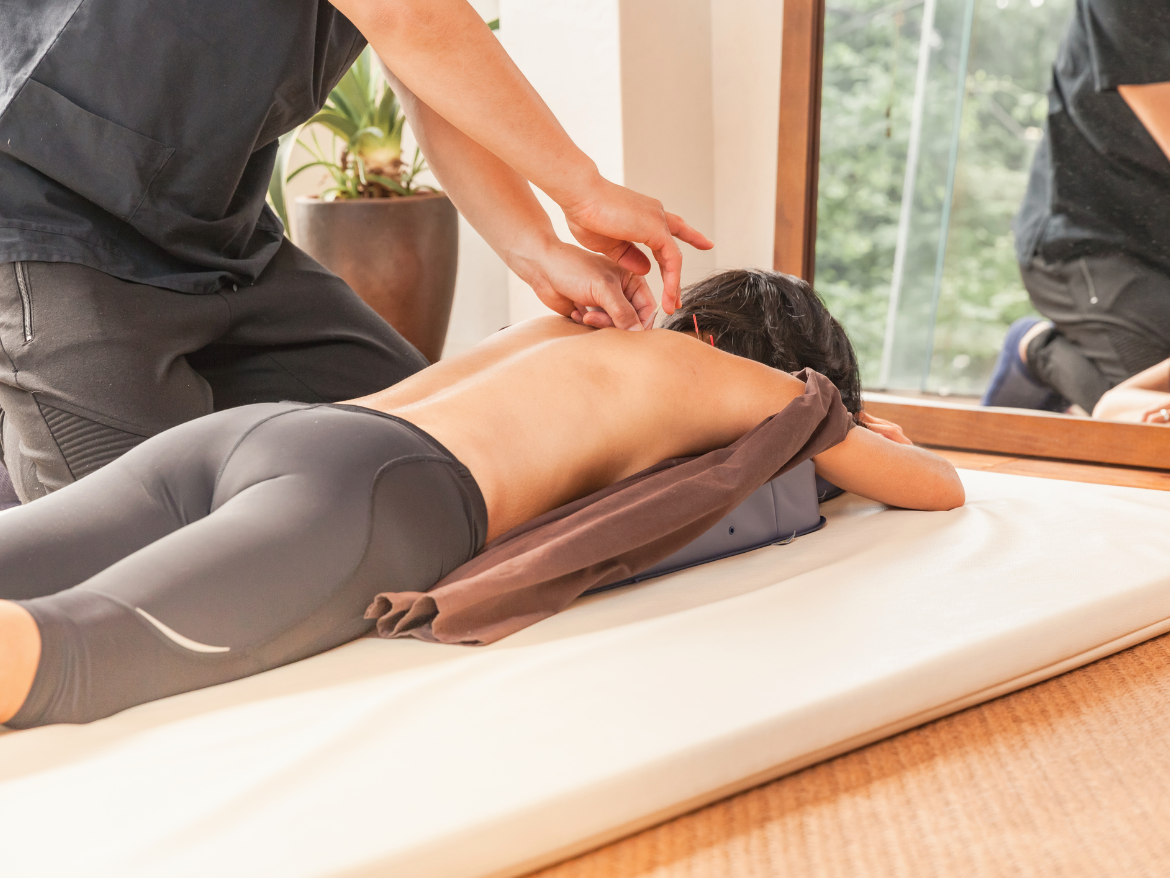Perimenopause, the transitional period leading up to menopause, can feel like an emotional and physical rollercoaster. It certainly has been for me. Chronic migraine auras and ocular migraines that sideline me, waves of nausea, and sleepless nights have all become unwelcome companions. Add to that the constant tension in my neck and the gnawing stress, and it’s fair to say I was seeking relief.
Then I discovered acupuncture, a holistic therapy that uses fine needles inserted at specific points on the body. Here in the UK, the NHS acknowledges acupuncture as a complementary treatment for pain relief and other conditions, deeming it a safe, drug-free alternative with minimal side effects. While acupuncture may not be a cure-all, it has become a powerful tool for me in navigating perimenopause. It’s a natural and effective way to manage various symptoms, promoting relaxation, reducing pain, and improving sleep.
Relief from Relentless Headaches
Migraines were a debilitating part of my perimenopause experience. The throbbing pain, light sensitivity, and nausea would knock me out for weeks. My acupuncturist explained that by inserting needles at specific points, she aimed to restore balance and alleviate the pain. It wasn’t a cure-all, but the difference was remarkable. After a few weekly sessions, the frequency and intensity of my migraines decreased significantly. I haven’t had a migraine aura or ocular migraine attack since.
Taming the Tide of Nausea
Another unwelcome side effect of perimenopause was the constant feeling of nausea, whether it was a low-grade queasiness or a full-blown wave that resembled motion sickness. Nothing seemed to stop the awful feeling. In one session, I walked in feeling incredibly ill and tearfully described the intense nausea that had prevented me from eating for two days. She gently placed the needles in specific points along my arms and head. By the end of the hour session, the nausea had completely subsided and didn’t return for a week. When it did reappear, it was much milder. We continued to work on it in further sessions. This is one symptom that has subsided for the time being, and I am no longer suffering from it.
Sleep Walking into Perimenopause
Perimenopause and insomnia often go hand-in-hand. Falling asleep became a struggle, and staying asleep felt like an Olympic feat. The constant state of sleep deprivation left me feeling drained and irritable. Acupuncture offered a natural solution for sleep issues. The gentle stimulation of the needles has a calming effect, promoting relaxation and preparing the body for sleep. After my acupuncture sessions, I found myself drifting off to sleep more easily and experiencing a deeper, more restful sleep. Waking up feeling refreshed became a reality again, a far cry from the pre-acupuncture exhaustion.
Melting Away Tension
The constant stress of perimenopause, coupled with the physical discomfort, manifested in a stiff neck and tight shoulders. The tension became a constant reminder of the changes happening within my body. The tiny acupuncture needles stimulate the nervous system, promoting the release of endorphins – the body’s natural pain relievers and mood boosters. This not only helped ease the physical tension in my neck but also contributed to a calmer, more relaxed state of mind.
A Holistic Approach
What truly sets acupuncture apart for me is its holistic approach. Unlike medications that often target specific symptoms, acupuncture addresses the underlying imbalances in the body’s energy flow. This holistic approach has a ripple effect, impacting various aspects of my perimenopause experience. It’s important to note that acupuncture is not a standalone solution. For me, it works best as part of a broader strategy for managing perimenopause. I’ve embraced healthy lifestyle changes like regular exercise, a balanced diet, and stress management techniques like meditation. Acupuncture complements these efforts by providing targeted relief and promoting overall well-being.
Finding the Right Acupuncturist
Before embarking on your acupuncture journey, it’s crucial to find a qualified practitioner. Look for someone licensed in your area with a good reputation. Don’t hesitate to ask questions during your initial consultation to ensure they understand your specific needs and goals. If you’re looking for a holistic approach to navigate this transitional phase, acupuncture might just be the missing piece in your perimenopause puzzle.
